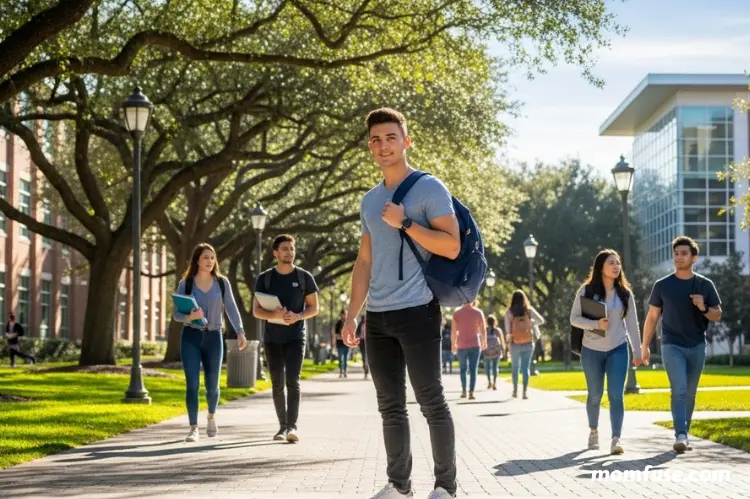Every student dreams of a future filled with opportunity, but turning those ambitions into reality requires careful planning and persistence. The path from high school to higher education can feel overwhelming with the growing competition for college admissions and the increasing pressure to make the “right” choices. Yet, with clarity, strategy, and support, students can navigate this journey confidently and set themselves up for lasting success.
Creating a clear academic and personal development plan early helps students align their studies, activities, and goals. When each decision, from course selection to extracurricular involvement, reflects a larger purpose, the results can shape college prospects and lifelong direction.
Setting Specific and Achievable Academic Goals

Students who set focused goals have a stronger sense of purpose and motivation. Instead of aiming vaguely for “good grades” or “a great college,” defining measurable objectives gives clarity. A student might decide to raise their GPA by a specific amount, improve writing skills for standardized tests, or explore a particular field through advanced coursework. Clear, actionable targets make progress easier to track and success easier to celebrate.
These goals should balance ambition with realism. A schedule that includes challenging yet manageable classes helps build resilience and readiness for higher-level academics. Mentorship from teachers, counselors, or peers can play a pivotal role. Feedback from those who understand a student’s strengths and learning style ensures that efforts are directed efficiently toward growth.
Seeking Professional Guidance and Admissions Strategy

Applying to college involves far more than filling out forms, it’s a strategic process that blends academics, personal story, and presentation. Many students and families choose to work with a college admissions consultant to streamline this process and gain personalized guidance. These professionals help students identify best-fit schools, craft compelling essays, and manage application timelines with precision.
A consultant’s experience provides valuable insight into what admissions officers seek beyond grades and test scores. They help students highlight leadership qualities, community involvement, and unique life experiences that make an application stand out. This support reduces stress by breaking the process into manageable steps, ensuring deadlines are met, and every detail is polished.
Even for highly motivated students, having expert advice brings structure and accountability. A thoughtful admissions plan transforms uncertainty into confidence, giving students a sense of control over their educational future.
Developing Skills That Go Beyond the Classroom

Academic performance remains vital, but soft skills, like communication, adaptability, and time management, are equally important for long-term success. Students who balance schoolwork with extracurricular commitments learn how to prioritize, collaborate, and think creatively. These abilities carry over to both college life and future careers.
Participation in clubs, volunteering, or internships provides hands-on experience that complements academic learning. These activities encourage curiosity, leadership, and civic awareness. They help students explore potential career paths, gaining clarity about what environments and roles suit them best.
Even part-time jobs can teach important lessons about professionalism, responsibility, and teamwork. When students combine strong academic preparation with practical life skills, they become more adaptable and capable of thriving in diverse environments.
Building Emotional Resilience and Self-Confidence

The journey to achieving big goals is rarely smooth. Rejections, setbacks, or unexpected challenges are inevitable. Building resilience helps students recover quickly, stay motivated, and continue moving forward. Emotional intelligence, understanding how to manage stress, maintain perspective, and seek support when needed, plays a major role in long-term achievement.
Students can strengthen resilience through reflection and self-care. Journaling, mindfulness practices, or simply maintaining a balanced schedule all contribute to better focus and emotional stability. Seeking feedback, learning from mistakes, and celebrating small victories reinforce confidence.
Confidence, unlike perfection, grows from consistent effort and awareness of progress. When students believe in their ability to improve, they are more likely to take initiative and persist even when circumstances are tough.
Maintaining Balance and Preventing Burnout

Ambitious students often push themselves hard, sometimes at the expense of rest and balance. Sustainable success depends on maintaining both physical and mental well-being. Without rest, creativity and productivity decline, and enthusiasm can turn into exhaustion.
Scheduling time for exercise, social interaction, and hobbies outside of academics keeps motivation alive. Establishing healthy boundaries around study time helps ensure that effort remains consistent rather than overwhelming. Parents and educators can support this balance by promoting a growth mindset, valuing progress over perfection, and learning over comparison.
Mapping the Road to Long-Term Success

Goal-setting doesn’t end once a student is accepted to college. The same skills that support admissions success, planning, self-discipline, and adaptability, remain important throughout higher education and into professional life. Students who view learning as a lifelong process continue to grow, refine their interests, and pursue new challenges with confidence.
Creating a vision for the future involves more than career aspirations; it includes personal values, community impact, and fulfillment. When students approach education as part of a broader life journey, they make choices that align with both ambition and purpose.
For students with big goals, success begins with intention. Defining priorities, building resilience, and seeking the right guidance all contribute to creating a clear, structured path forward. Each choice, academic, personal, or professional, builds upon the last, moving students closer to their vision of success. With thoughtful planning and consistent effort, the journey to achieving those goals becomes not only possible but deeply rewarding.
Read Next: Homeschooling Resources to Boost Kids’ Learning
Jessica Fuqua is a mom of two who writes about the messy, beautiful reality of raising kids. She believes parenting advice should feel like a conversation with a friend, not a lecture. When she’s not writing, she’s probably reheating the same cup of coffee for the third time.

